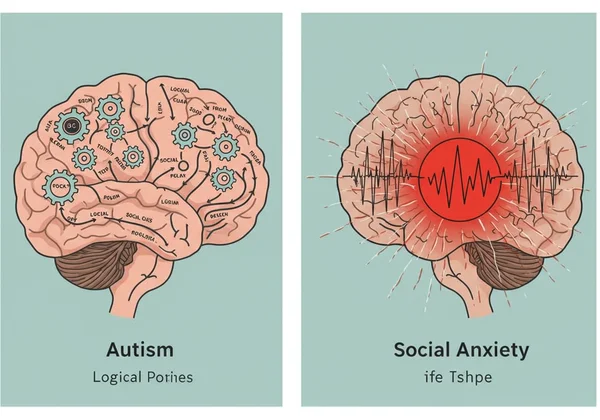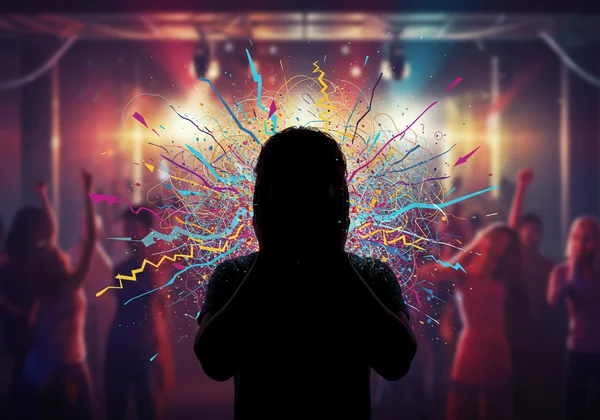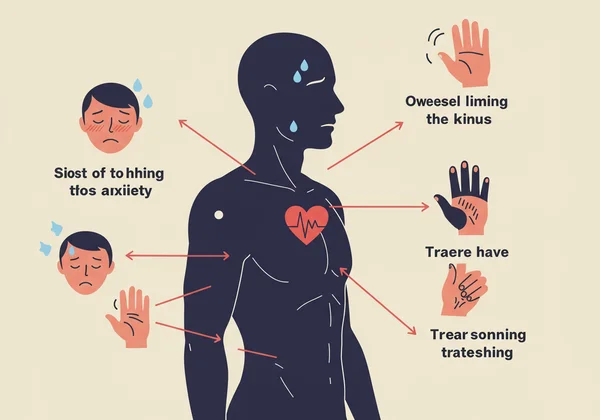Autism Spectrum Test: Autistic or Just Socially Awkward?
August 26, 2025 | By Leo Whitaker
Feeling out of place in social situations is a common human experience. But if it's a persistent, draining challenge, you might find yourself wondering: is this social awkwardness, or could it be a sign of something more? The question of being autistic or socially awkward is a path many walk on their journey to self-understanding. Am I autistic or just socially awkward? This guide is here to explore the key differences, not for self-diagnosis, but to provide clarity and empower you with knowledge. Understanding these nuances is the first step toward self-acceptance, and a helpful online autism test can be a valuable tool on that path.
Understanding the "Why": Autism vs. Social Anxiety
To truly grasp the difference, we must look beyond the surface behavior and explore the underlying motivations. While both can lead to difficulties in social settings, the reasons behind these challenges are fundamentally distinct. This is often the most significant differentiator when comparing autistic social traits to social anxiety, which is a common driver of what people label "social awkwardness."

Motivation Behind Social Challenges
The core of the difference lies in neurology versus fear. For an autistic individual, social difficulties often stem from differences in how their brain processes information. This can manifest as trouble intuitively reading non-verbal cues like body language, facial expressions, or sarcasm. The challenge isn't a lack of desire to connect, but a disconnect in the brain's "social wiring."
In contrast, social anxiety is primarily driven by an intense fear of negative judgment. A person with social anxiety might understand the social cues perfectly but is overwhelmed by the fear of being scrutinized, embarrassed, or rejected. The motivation isn't a processing difference, but an emotional response rooted in fear, which paralyzes their ability to act naturally.
The Role of Social Cues and "Rules"
This leads to another key distinction: how individuals approach unwritten social rules. Neurotypical people, and those with only social anxiety, often absorb social rules implicitly. For many autistic people, these rules aren't intuitive and must be learned consciously and logically, almost like studying a manual for a foreign culture. They might develop complex systems of rules to navigate conversations, which can be mentally exhausting.
Someone with social anxiety, however, typically understands the rules. Their anxiety comes from the high stakes they place on executing these rules perfectly. They worry that any mistake will lead to humiliation. They know they should make small talk, but the fear of saying the wrong thing can be so debilitating that they remain silent.
After the Interaction: Reflection vs. Rumination
What happens after a social event is also very telling. An autistic person might replay a conversation to analyze it, trying to understand where communication broke down or to deconstruct a social script for future use. This process is often analytical and logical—a form of problem-solving to improve future interactions. It's about understanding the "how" and "why" of the social exchange.
Conversely, a person with social anxiety is more likely to ruminate. This involves replaying perceived failures over and over with harsh self-criticism. The thoughts are often emotionally charged, focusing on what they believe they did wrong and the negative judgments others might have made. It's less about analysis and more about self-flagellation driven by anxiety. If this sounds familiar, an autism spectrum test for adults could offer some initial clarity.
Key Differentiators in Daily Experience
The differences don't stop at social interactions. They permeate many aspects of daily life, revealing patterns that go far beyond simple awkwardness. Examining these areas can provide a fuller picture of whether you're experiencing traits associated with autism or anxiety.
Sensory Processing and Overload
One of the defining characteristics of autism is a difference in sensory processing. This can mean being hypersensitive (overly responsive) or hyposensitive (under-responsive) to sensory input. Bright lights might feel painful, the hum of a refrigerator can be distracting, or the tag on a shirt can feel unbearable. Social withdrawal for an autistic person might not be about the people, but about escaping an overwhelming sensory environment.

This is typically not a primary feature of social anxiety. While intense anxiety can make someone more sensitive to their surroundings, the discomfort is a byproduct of the anxiety itself, not a core neurological trait. The desire to leave a party is driven by fear of social judgment, not the sensory assault of the music and crowd. Understanding your sensory profile is a key part of self-discovery, and an online autism screening can touch upon these traits.
Special Interests vs. Avoiding Hobbies
Many autistic individuals have special interests—deep, passionate, and highly focused areas of expertise. These interests are a source of immense joy, comfort, and engagement. An autistic person might love to share details about their special interest, seeing it as a way to connect with others, even if the topic is niche.

Social anxiety can have the opposite effect. A person might avoid group hobbies or activities they genuinely enjoy out of fear of performing poorly or being judged by others. The anxiety stifles their engagement with passions, whereas for an autistic person, their passion is a refuge and a core part of their identity. The joy of a special interest is intrinsic, not dependent on social approval.
The Nature of Communication Differences
Communication styles also offer important clues. Autistic communication is often characterized by directness and honesty. An autistic person may take language very literally and struggle with figurative speech or sarcasm. They might not offer conversational filler and can be concise in their speech. Differences in making or maintaining eye contact are also common.
For someone with social anxiety, communication challenges are usually born from fear. They might avoid speaking up, speak too quietly, or over-rehearse what they want to say. They may struggle to initiate conversations not because they don't know how, but because they fear the potential negative outcome. Their communication is filtered through a lens of anxiety, whereas an autistic person's communication is filtered through a different neurological processing style. If you're exploring these patterns, a free autism test is a no-pressure way to start.
What are Common Social Awkwardness Symptoms?
To provide a clear comparison, it's helpful to specifically define the symptoms most commonly associated with social anxiety-driven awkwardness. These often have a strong physical and behavioral component directly linked to the fear response in social situations. Recognizing these can help you pinpoint the source of your discomfort.

Physical Signs of Social Anxiety
When social anxiety is the root cause, the body often has a powerful, visible reaction. This is the fight-or-flight response kicking in during social encounters. Common signs include:
- Blushing, flushing, or feeling your face get hot.
- Excessive sweating, especially in the palms or underarms.
- Trembling or shaking in your hands or voice.
- A rapid heartbeat or a feeling of your heart pounding.
- Nausea or an upset stomach.
These symptoms are a direct result of anxiety and tend to subside once the social situation is over.
Behavioral Patterns to Note
Behaviorally, social anxiety creates patterns of avoidance and intense self-monitoring. A person might actively avoid social events like parties, meetings, or even phone calls. When they can't avoid them, they may spend hours or days beforehand worrying about it, rehearsing conversations in their head.
During and after the interaction, there's often a tendency to be overly self-critical, focusing on every tiny mistake. They might seek constant reassurance from others that they didn't do anything wrong. This pattern of avoidance and self-criticism is a hallmark of social anxiety, and distinguishing it from other traits is an important step. An initial signs of autism test can help you organize your thoughts on this.
Understanding Your Social Experiences: What's Next?
Navigating the complexities of social interaction can be challenging, but understanding the "why" behind your experiences is a powerful step toward self-acceptance. Distinguishing between autistic traits and social anxiety isn't about applying a label; it's about gaining the clarity needed to find the right strategies and support for yourself. Remember, these two can also co-occur, making the picture even more complex.
This guide is a starting point for your reflection. If you've read through these points and feel a strong sense of recognition, your journey of self-discovery doesn't have to stop here. For deeper, personalized insights into your own traits, the next step can be a helpful screening tool. Take our free autism test to explore your traits further in a confidential and supportive way.
Common Questions About Autism and Social Traits
Can a person be both autistic and have social anxiety?
Yes, absolutely. It is very common for autistic individuals to also develop social anxiety. Repeated challenging or negative social experiences, stemming from neurological differences in understanding social cues, can lead to a learned fear of social situations. In this case, both the neurological processing differences and the fear of judgment are present, making it essential to address both aspects.
How do I know for sure if I am autistic?
The only way to know for sure is through a formal diagnostic assessment conducted by a qualified professional, such as a psychologist or psychiatrist. While online screeners are valuable tools for self-exploration and deciding whether to seek a formal diagnosis, they cannot provide an official diagnosis. An assessment like our autism spectrum test can be an excellent first step to gather information for that conversation.
Are online autism tests accurate?
Reputable online autism tests, especially those based on scientifically validated screening tools like the Autism Spectrum Quotient (AQ), can be a highly accurate starting point. They are designed to identify traits commonly associated with autism. However, they are screening tools, not diagnostic instruments. They accurately indicate whether you have enough traits to warrant further investigation but cannot replace a comprehensive evaluation by a healthcare professional. You can get deeper insights with our confidential online tool.